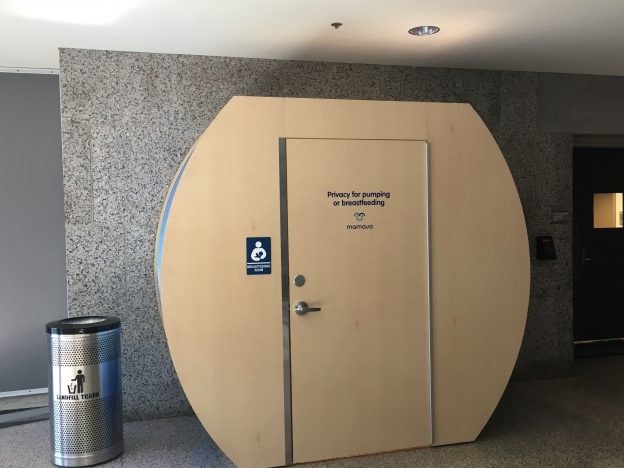Course Description (spring 2018)
This course draws on a variety of fields including anthropology, sociology, feminist science and technology studies, design studies, literature, medicine, and philosophy to provide a critical perspective on the connections between gender and technology. Technology is deeply integrated into most aspects of our lives; however, technology is never gender- (or race-) neutral. This course will investigate the relevance of gender, race, class and sexuality to understanding technology and the development of new technologies. We will consider a wide range of questions including: How does gender figure into technology design? What role have women played in the development of technology? How has technological change affected the roles of women and ideas of gender? How might gender, race, class, age, or disability affect access to a technology and how that technology is used? How does technology offer possibilities for new social relations and how might we evaluate these possibilities? Does technology foster or create community, or does it cause community to deteriorate? Topics will include: feminist technology studies, the digital divide, the rise of communications technologies like the typewriter and telephone, social media, home technologies, genetics and reproductive technologies.
Required Materials:
Women, Gender, and Technology (Fox, Johnson, Rosser, eds.)
The Type-Writer Girl (Grant Allen)
Feminist Technology (Layne, Vostral, Boyer, eds.)
Testament of Jessie Lamb (Jane Rogers)
American Girls: Social Media and the Secret Lives of Teenagers (Nancy Jo Sales)
TechnoFeminism (Judy Wajcman)
Course Objectives:
- Learn how social categories such as gender, race, class and sexuality are shaped by technology and in turn, shape the development of new technologies.
- Understand how technology may be best understood as a “co-production” of gender and technological exploration.
- Read complex texts actively: identify main ideas; evaluate evidence/examples; raise questions; appreciate complexity and ambiguity; recognize figurative uses of language.
- Appreciate how different disciplinary approaches illuminate different things about a given topic. E.g. when reading novels, recognize how literary form and devices shape meaning; when reading anthropological studies, recognize the value of participant observation, interview, and thick cultural description.
- Practice writing as a process of motivated inquiry, engaging other writers’ ideas through the use of quotations, paraphrase, allusions and summary. Use sources effectively and cite them correctly (using either MLA or APA format).
- Increase confidence in speaking publicly: articulate clear questions and ideas while leading or participating in class discussion; listen thoughtfully and respectfully to others’ ideas; and prepare and deliver engaging oral presentations.
- Enjoy the experience of reading challenging texts; appreciate how course materials elicit strong feelings, cultivate the imagination (esp. in problem solving), and exercise our ethical organs.
Course Schedule:
Week 1
Key Terms, “Gender stereotypes about intellectual ability emerge early and influence children’s interests” (Science 27 Jan. 2017)
Women, Gender, and Technology Introduction & chapter 1 & “Do Artifacts Have Politics?” (Langdon Winner)
Week 2 Women & Work
The Type-Writer Girl & “How Bicycles Boosted the Women’s Rights Movement”
Week 3
The Type-Writer Girl & “The Cultural Work of the Type-Writer Girl” (Christopher Keep)
Women, Gender, and Technology ch. 4 & “Gender, Work and Technology in the Information Workplace: from typewriters to ATMs” (Kate Boyer and Kim England)
Week 4 Feminist Technologies
Feminist Technology Intro & chs. 1, 2, 3, 4 & “Women Behind Speculum Redesign”
Week 5
Feminist Technology ch. 5 and “Launch Pad”
[on barriers to women in STEM fields] Women, Gender & Technology ch. 2, 3 & “Why Is Silicon Valley So Awful To Women?”
Week 6 Phones & Social Media
“Women and the Telephone: The Gendering of a Communications Technology,” (Lana F. Rakow); “Women on the Move: The Mobile Phone as a Gender Technology” (Carla Ganito); & “What Women Want”
Week 7
American Girls Intro, ch. 1 & 2
Week 8
American Girls ch. 3, 4, 5, 6, 7, & conclusion
Week 9: Spring Break: I strongly recommend you read Rogers’ novel during break.
Week 10 Reproductive Technologies
Women, Gender, &Technology ch. 6
The Testament of Jessie Lamb pp. 1-103
Week 11
The Testament of Jessie Lamb pp. 104-240 & Women, Gender, &Technology ch. 7
“Outcast Mothers and Surrogates: Racism and Reproductive Politics in the Nineties” (Angela Davis) & “Black Mothers Keep Dying”
Week 12 Digital Divides
Women, Gender, &Technology ch. 5; “Technology Trends Among People of Color”; “Digital Readiness Gaps”; & “Google Hopes to Hire More Black Engineers”
Week 13
Techno Feminism Intro, ch. 1, 2, 3
Week 14
Techno Feminism ch. 4, 5

